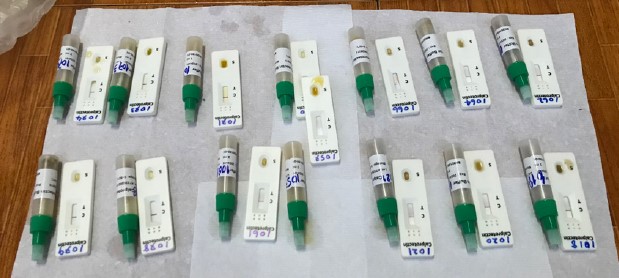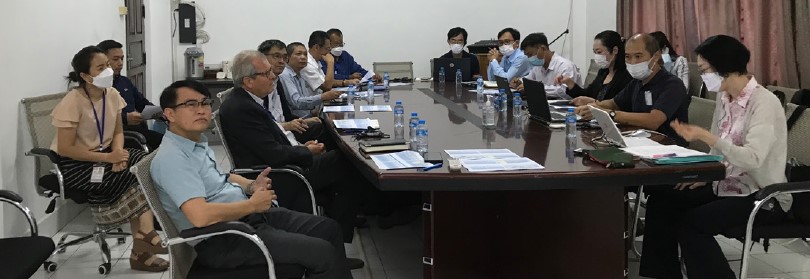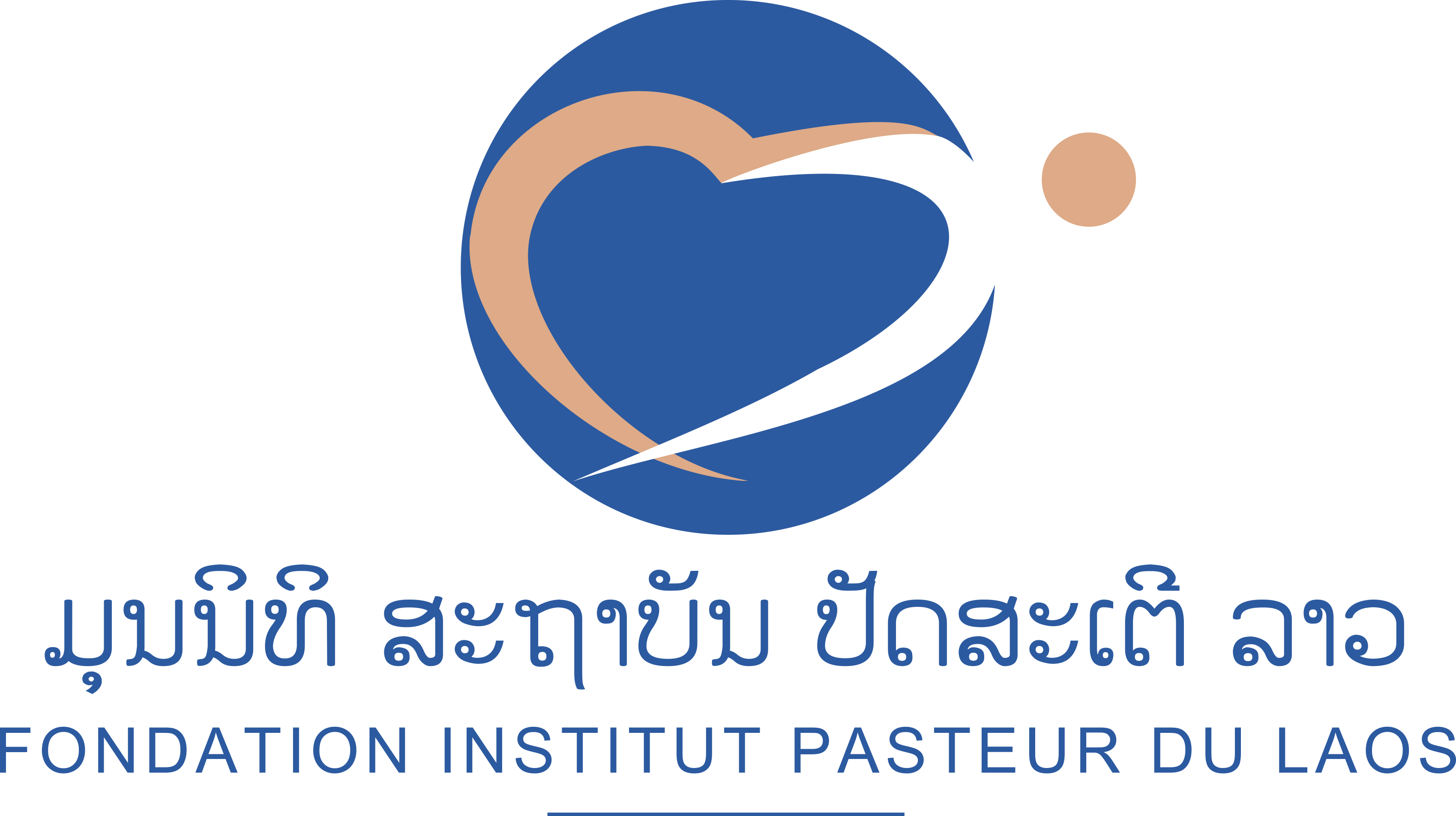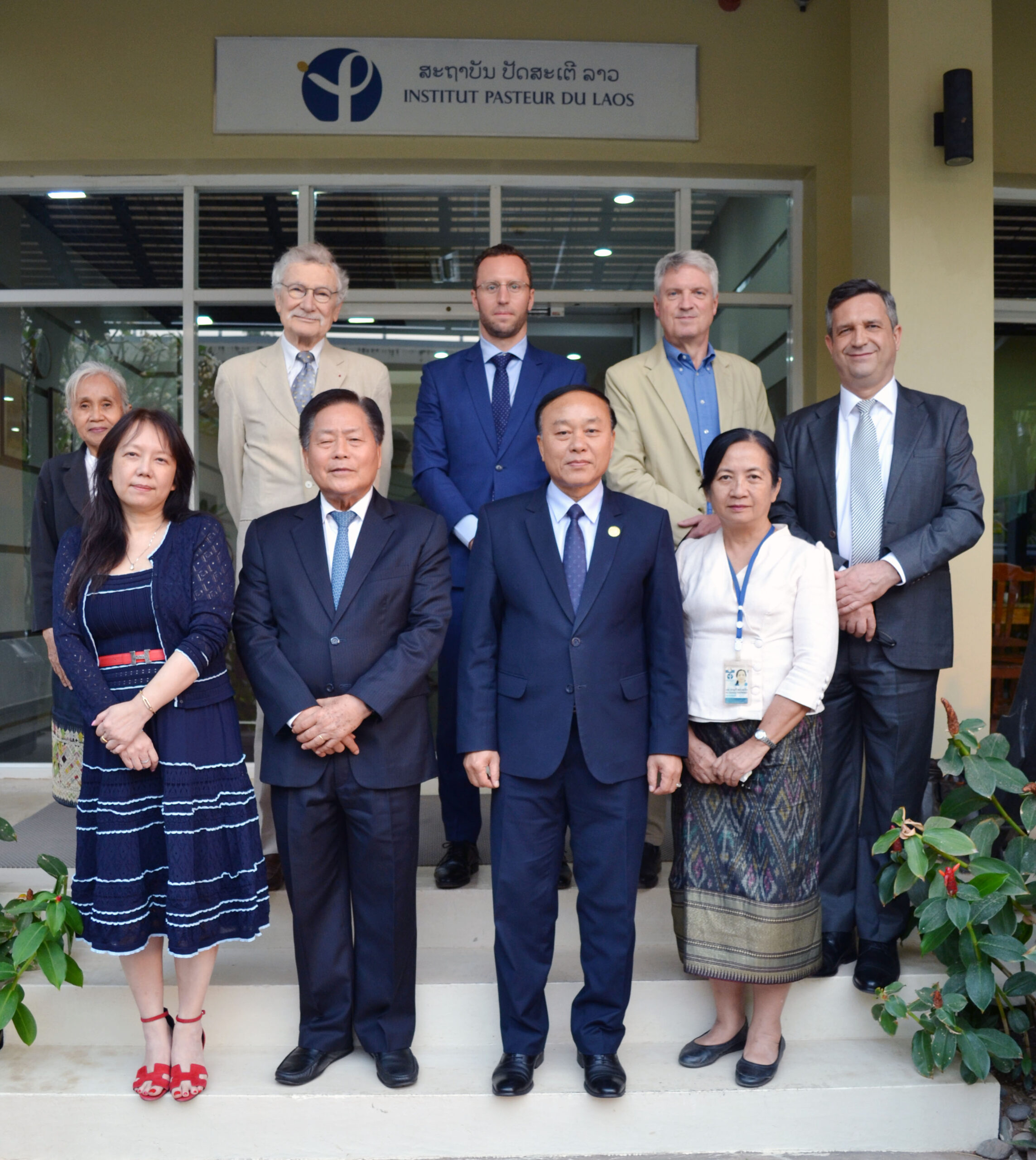LaoBiome Project
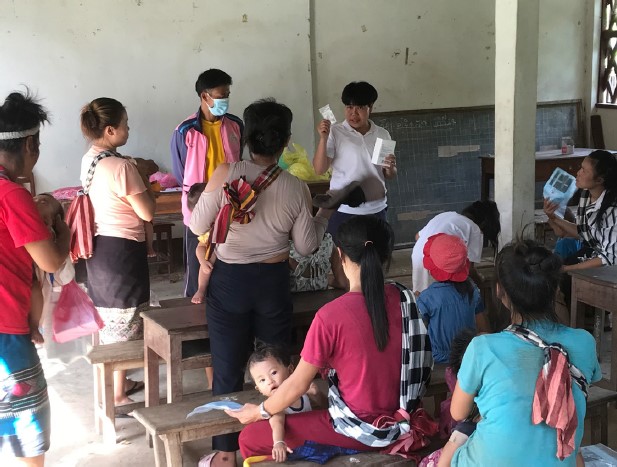 Title: Effects of “For Baby” supplementation on young children’s physical growth and a reduction of diarrheal episodes: A double blinded randomized controlled, community-based trial in rural Lao PDR
Title: Effects of “For Baby” supplementation on young children’s physical growth and a reduction of diarrheal episodes: A double blinded randomized controlled, community-based trial in rural Lao PDR
Principal Investigator
Dr. Latsamy Seingsounthone, Lao Tropical and Public Health Institute (Lao TPHI)
Co-investigators and other persons involved
Somphou Sayasone, Lao TPHI
Paul Brey, IPL
Won Jae Lee, Seoul National University, South Korea
Mrs. Somsanith Chonephetsarath, Coordinator, IPL
Members of Parasitology Lab, IPL
Period: 2022-2023
Study area:
Luang Prabang province
Finance and administration:
Dr. Antoine des GRAVIERS and Ms. Phouvanhnamalee VILAYSOUK
Background
Children living in communities with poor sanitation are at increased risk of developing environmental enteropathy (EE), a condition marked by significant changes in gut structure and function, as well as intestinal inflammation and a lack of overt diarrhea. Thus, EE may play an important role in malnutrition and impaired infant development [1].
In settings, where several micronutrient deficiencies often co-exist multiple micronutrient powders (MNP) have been a preferred approach to improve young children’s nutrition and health [2,3]. MNP were originally designed for home-fortification of complementary foods to prevent deficiencies of multiple micronutrients namely iron, Zinc, Vit A and other 13 minerals and vitamins were also included. Since 2014, 50 countries were implementing large-scale programs to distribute MNP [4,5]. In Lao PDR, MNP was introduced as supplementation program in 34 districts of 7 provinces in 2017, aiming to promote home-fortification of complementary foods to prevent deficiencies of multiple micronutrients that exists largely among malnourished children. While there is consistent evidence on the beneficial impact of MNP on iron status and anemia, the impact of MNP on morbidity, developmental, and growth outcomes, has been inconsistent [4,6]. MNP use has also been associated with altered gut microbiota, intestinal inflammation, and an increased risk of diarrhea in some studies, possibly related to the provision of supplemental iron in MNP (10-12.5 mg/d) and modified by individuals’ underlying iron status [7,8].
Recently, modulation of microbiome by therapeutic diet and supplementation has been shown to be effective in animal model, as well as in human [9]. This new therapeutic study to treat environmental enteropathy (EE) has been nominated as “the breakthrough of the year 2019” for nutritional therapy. Studies demonstrated that single species of Lactobacillus plantarum is sufficient to induce growth promotion in different animal models from Drosophila to mice [9,10].
The long history of safe use of various probiotics in fermented foods and their presence in the normal intestinal and urogenital microbiota of humans has brought probiotic therapeutics to the forefront of scientific research [11,12]. Recent research has shown that certain probiotics are extremely useful for the treatment of EE in malnourished children and has significant growth promoting effects [1,13,14]. However, new studies are needed to better understand EE and its consequences.
This double blinded randomized controlled trial is designed to provide empirical evidence to inform global guidelines and country policies for delivering “For-Baby” supplement to young children which could provide the maximal beneficial impact on gut health and nutritional status of young children.
Objective
The aim of this trial is to determine the positive effects of “For-Baby” supplementation on physical growth and a reduction of diarrheal episodes in young children aged 6–23 month-old at inclusion, after a year of supplementation in Lao PDR.
Methodology
The LaoBiome Study is a community-based double blinded randomized controlled trial. Approximately 1,200 infants and young children 6-23 months of age will be enrolled, and individually-randomized to one of two intervention groups of 600 children: 1) daily administration of “For-Baby” supplements (Intervention Group); 2) daily administration of micronutrient Placebo (Control Group). We use micronutrient placebo as it is currently advised in national nutrition policy, however, for the programmatic point of view, iron taste in MNP reduces compliance, and therefore we exclude the iron from MMNP in this LaoBiome study. In both groups, children will remain under observation and receive their assigned supplements for a period of 12 months (52-weeks). Stool samples will be collected from the study participants at three-time points: month 0 (base line data: before taking the supplement or placebo), month 6, and month 12.
Progress
IPL Parasitology Lab takes responsibility for stool sample collection and stool examination by formalin-ethyl acetate concentration technique (FECT) and a calprotectin rapid diagnostic test (RDT) kit with collaboration with Lao TPHI team. Currently, the base line survey (month 0) was conducted from March-July 2023 (a total of four field surveys) and month 6 survey (only once) was conducted by the IPL Parasitology team. To investigate inflammation of intestine, calprotectin is examined by calprotectin RDT on site whereas, to investigate parasite infection status, FECT was performed at IPL. The data will be published after the analyses will be completed.
Financial support
This project is supported by ILDONG Pharmaceutical Co., Ltd. and Saeloun Bio Co., Ltd.
References
1. Schwarzer L, Kaiser S, Flemer B, Hamm J, Hinrichsen F, Bordoni D, Rosenstiel P, Sommer F (2020) Nutritional Targeting of the Microbiome as Potential Therapy for Malnutrition and Chronic Inflammation. Nutrients 12. nu12103032 [pii];nutrients-12-03032 [pii];10.3390/ nu12103032 [doi].
2. Winichagoon P (2008) Coexistence of micronutrient malnutrition: implication for nutrition policy and programs in Asia. Asia Pac J Clin Nutr 17 Suppl 1: 346- 348.
3. Lamberti LM, Fischer Walker CL, Black RE (2016) Zinc Deficiency in Childhood and Pregnancy: Evidence for Intervention Effects and Program Responses. World Rev Nutr Diet 115: 125-133. 000442079 [pii];10.1159/000442079 [doi].
4. De-Regil LM, Suchdev PS, Vist GE, Walleser S, Peña- Rosas JP (2013) Home fortification of foods with multiple micronutrient powders for health and nutrition in children under two years of age (Review). Evid Based Child Health 8: 112-201. 10.1002/ebch.1895 [doi].
5. UNICEF (2015) United Nations Children’s Fund. Annual Results Report. Nutrition.
6. Hess SY, Wessells KR, Hinnouho GM, Barffour MA, Sanchaisuriya K, Arnold CD, Brown KH, Larson CP, Fucharoen S, Kounnavong S (2019) Iron status and inherited haemoglobin disorders modify the effects of micronutrient powders on linear growth and morbidity among young Lao children in a double-blind randomised trial. Br J Nutr 122: 895-909. S0007114519001715 [pii];BJN-122-08-895 [pii];10.1017/S0007114519001715 [doi].
7. Samadpour K, Long KZ, Hayatbakhsh R, Marks GC (2011) Randomised comparison of the effects of Sprinkles and Foodlets with the currently recommended supplement (Drops) on micronutrient status and growth in Iranian children. Eur J Clin Nutr 65: 1287-1294. ejcn2011124 [pii];10.1038/ejcn.2011.124 [doi].
8. Zlotkin S, Arthur P, Schauer C, Antwi KY, Yeung G, Piekarz A (2003) Home-fortification with iron and zinc sprinkles or iron sprinkles alone successfully treats anemia in infants and young children. J Nutr 133: 1075-1080. 10.1093/ jn/133.4.1075 [doi].
9. Shin DY, Yi DY, Jo S, Lee YM, Kim JH, Kim W, Park MR, Yoon SM, Kim Y, Yang S, Lim IS (2020) Effect of a new Lactobacillus plantarum product, LRCC5310, on clinical symptoms and virus reduction in children with rotaviral enteritis. Medicine (Baltimore) 99: e22192. 00005792- 202009180-00045 [pii];MD-D-20-03541 [pii];10.1097/ MD.0000000000022192 [doi].
10. Schwarzer M, Makki K, Storelli G, Machuca-Gayet I, Srutkova D, Hermanova P, Martino ME, Balmand S, Hudcovic T, Heddi A, Rieusset J, Kozakova H, Vidal H, Leulier F (2016) Lactobacillus plantarum strain maintains growth of infant mice during chronic undernutrition. Science 351: 854-857. 351/6275/854 [pii];10.1126/science.aad8588 [doi].
11. Maldonado NC, Chiaraviglio J, Bru E, De CL, Santos V, Nader-MacÃas MEF (2018) Effect of Milk Fermented with Lactic Acid Bacteria on Diarrheal Incidence, Growth Performance and Microbiological and Blood Profiles of Newborn Dairy Calves. Probiotics Antimicrob Proteins 10: 668-676. 10.1007/s12602-017-9308-4 [pii];10.1007/ s12602-017-9308-4 [doi].
12. Vadopalas L, Zokaityte E, Zavistanaviciute P, Gruzauskas R, Starkute V, Mockus E, Klementaviciute J, Ruzauskas M, Lele V, Cernauskas D, Klupsaite D, Dauksiene A, Sederevicius A, Badaras S, Bartkiene E (2021) Supplement Based on Fermented Milk Permeate for Feeding Newborn Calves: Influence on Blood, Growth Performance, and Faecal Parameters, including Microbiota, Volatile Compounds, and Fatty and Organic Acid Profiles. Animals (Basel) 11. ani11092544 [pii];animals-11-02544 [pii];10.3390/ ani11092544 [doi].
13. Barkhidarian B, Roldos L, Iskandar MM, Saedisomeolia A, Kubow S (2021) Probiotic Supplementation and Micronutrient Status in Healthy Subjects: A Systematic Review of Clinical Trials. Nutrients 13. nu13093001 [pii];nutrients-13-03001 [pii];10.3390/nu13093001 [doi].
14. Hajare ST (2021) Effects of potential probiotic strains LBKV-3 on Immune Cells responses in Malnutrite children: a double-blind, randomized, Controlled trial. J Immunoassay Immunochem 42: 453-466. 10.1080/15321819.2021.1895217 [doi].
